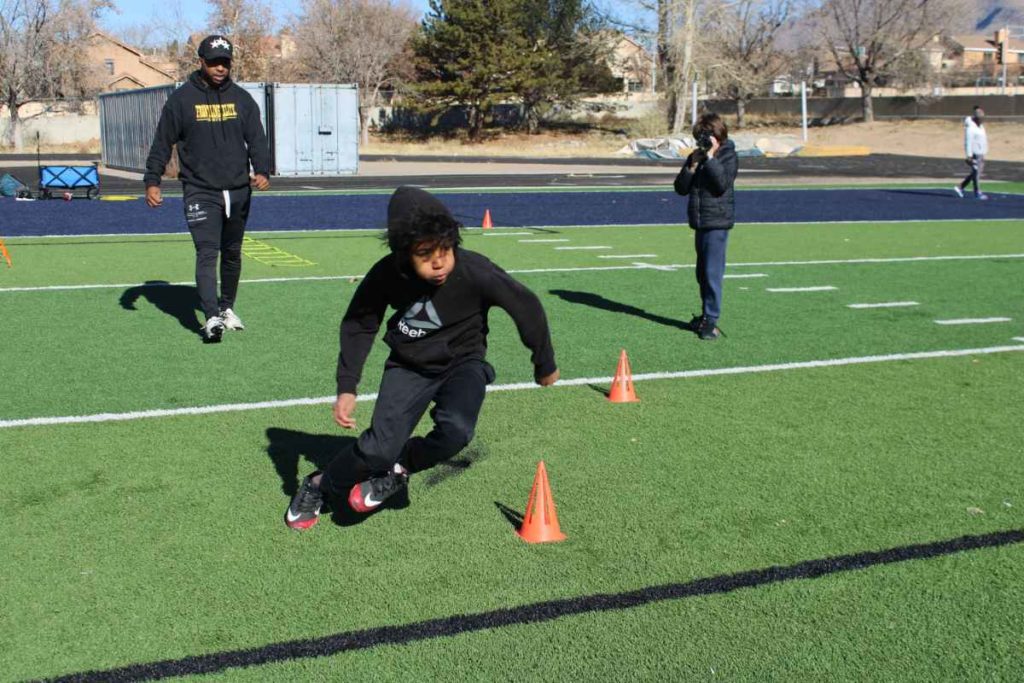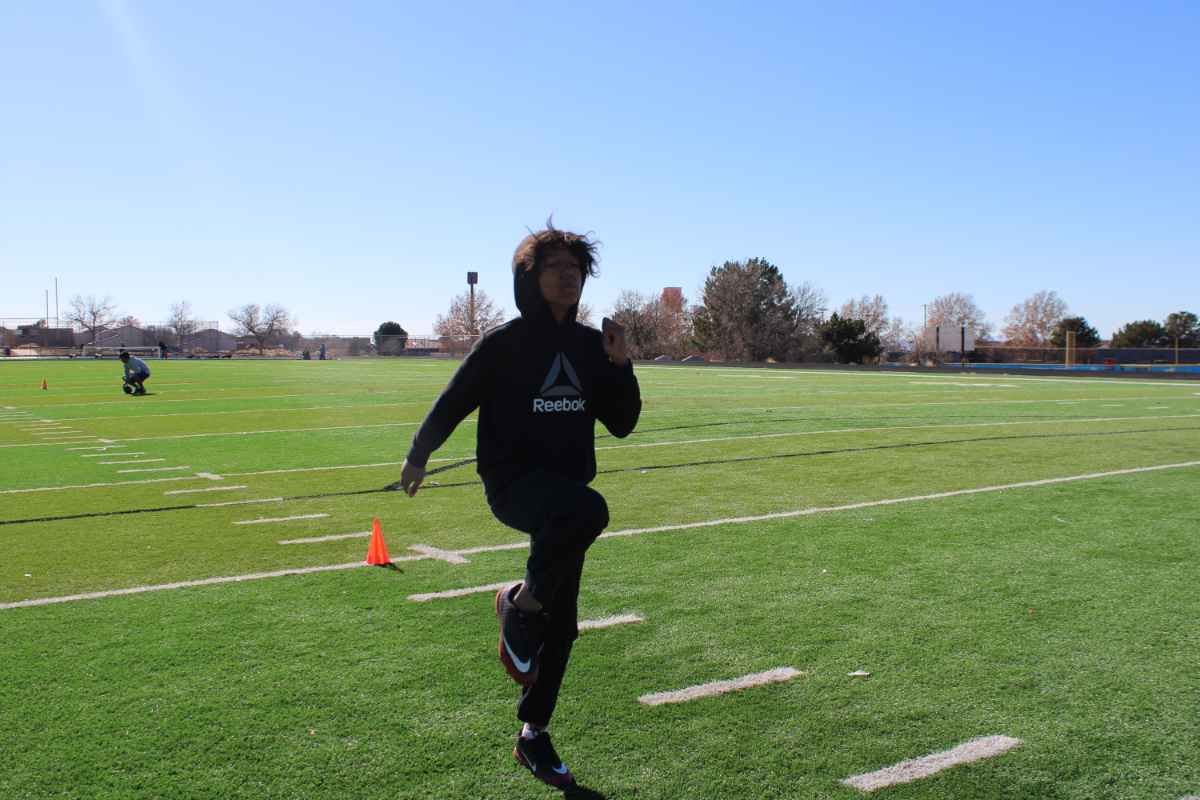Performance is not dictated just by how hard one trains, but also the mentality athletes bring to the game. Frontline Elite Training teaches both hard work and confidence, something former University of New Mexico running back Daryl Chestnut says separates the good from the best.
“I’m bringing the attitude from Miami. We’re bringing a different type of asset — from our ability to our movement — the mental Miami attitude is having nothing but confidence,” Chestnut said. “We’re all confident. All of the guys that I’ve trained are extremely confident. He feels like he’s the best 11-year-old out here, and I truly believe that, too. That’s the Miami attitude. So, anything that I get my hands on, any kid that I’m training, I’m going to make them the best and we’re going to be the best because we’re going to put the best work in. So, it’s all value and it’s all Miami mentality. Simple as that.”
Chestnut, who hails from Miami and is the owner of Frontline Elite Training, was at La Cueva High School on Saturday running drills with 11-year-old Two Owens. Chestnut had Two running ladders, sprinting up hills and practicing the famous “stick move.” Two’s little brother, Mike, was filming and taking photos during the training. One of the videos Mike posted on Instagram, seen below, has over 12,000 views and close to 100 likes.
Start at a young age, train hard and take care of your body
A comment on the Frontline Training Instagram post says, “The older they get, the harder it gets. Not just sports but in life period… we’re gonna warn our results.”
Chestnut says starting at a young age and training in the off season helps athletes to stand out above the rest and be better at what they do, no matter the sport or path they choose in life.
“The benefit to me is you get ahead. He never stops training no matter if it’s track, no matter if it’s basketball, no matter if it’s here. He’s always keeping his feet moving,” Chestnut said. “And with him doing that and everyone else resting and chilling and having a great time, he’s actually working to get ahead. It’s not just for football, it’s a mindset. Everything’s a mindset. If he installs this early, we’re creating an independent young man, and that’s what we want to create.”
Chestnut says he trains athletes of different ages that play in all types of sports, including one who is in jujitsu. He said he was a little surprised to see the moves practiced in training used in the dojo.
In addition to training hard and having a Miami mindset, Chestnut says he helps to prevent injuries and burnout through proper warm-ups, stretching and communication.
“I’m open to him actually explaining and talking to him about how he feels,” Chestnut said. “I’m more than just a trainer to him and I’m more than just a trainer to all these guys. I want to be a role model.”
He says it’s important for athletes to tell their coaches they are tired or need a day off. “I understand because I’ve been in their shoes,” Chestnut said.
To prevent injuries, Chestnut makes sure athletes are not overworked. “If I know he has a game tomorrow and his dad brings him to train, it’s a mental day,” he said. “I know if we did something intense yesterday, today we’re going to do something light because I still want him to be 100% whenever a game or any competition comes around.
“If you’re not taking care of your body every day, if you’re going out there and not stretching, if you’re going out there and taking every play for granted, then your ability doesn’t outweigh the risk of getting injured. So, you have to take care of your body.”
Athlete development, getting exposure and being noticed for your talent
Although Two is still young, the training he receives at Frontline will help him develop and improve as he gets older. Chestnut said he is already more advanced in many areas than a lot of 15- and 16-year-olds.
“Obviously him playing in high school right now, he’s too small, but when he goes without pads one on one, like one versus one, receiver versus corner, he’s one of those kids that can excel,” Chestnut said.
On top of pushing young athletes to progress and develop their skills, Chestnut works to get high schoolers noticed by coaches. He said he contacted a coach in Kansas about a La Cueva football player who was set to go New Mexico Highlands. “I felt like he was a little bit better than that, so I got him in touch with my junior college, which is in Kansas, and also sent his highlights to my head coach that I played with in Miami,” Chestnut said.
When asked about the three La Cueva football players who traveled to Texas for the Blue-Grey All-American Bowl, Chestnut said, “It’s exposure. Exposure leads to a coach actually taking notice of who the kids are.”
He says it’s even more beneficial for younger athletes like Two to travel and get noticed at an early age. “You do it early, 11, 12 years old, it’s going to benefit you to the max.”
Two is already traveling and playing football for different teams in New Mexico, Arizona and Texas. He also plays basketball and runs track. When asked what his favorite part of training with Chestnut is, Two said, “Probably the routes. Doing the routes, running the routes and him throwing the ball to me.”
More training videos and photos of Two and other athletes can be found on Frontline Elite Training Facebook and Instagram accounts. Chestnut said he has a lot of followers from Miami who are taking notice of what he’s doing and the athletes he’s training.
“The people that join in, the people that have taken notice, by them committing to us they’re not just committing to getting better,” he said. “They’re committing to being a better person, their kid becoming a better athlete and so much more.”



